Census & Elections
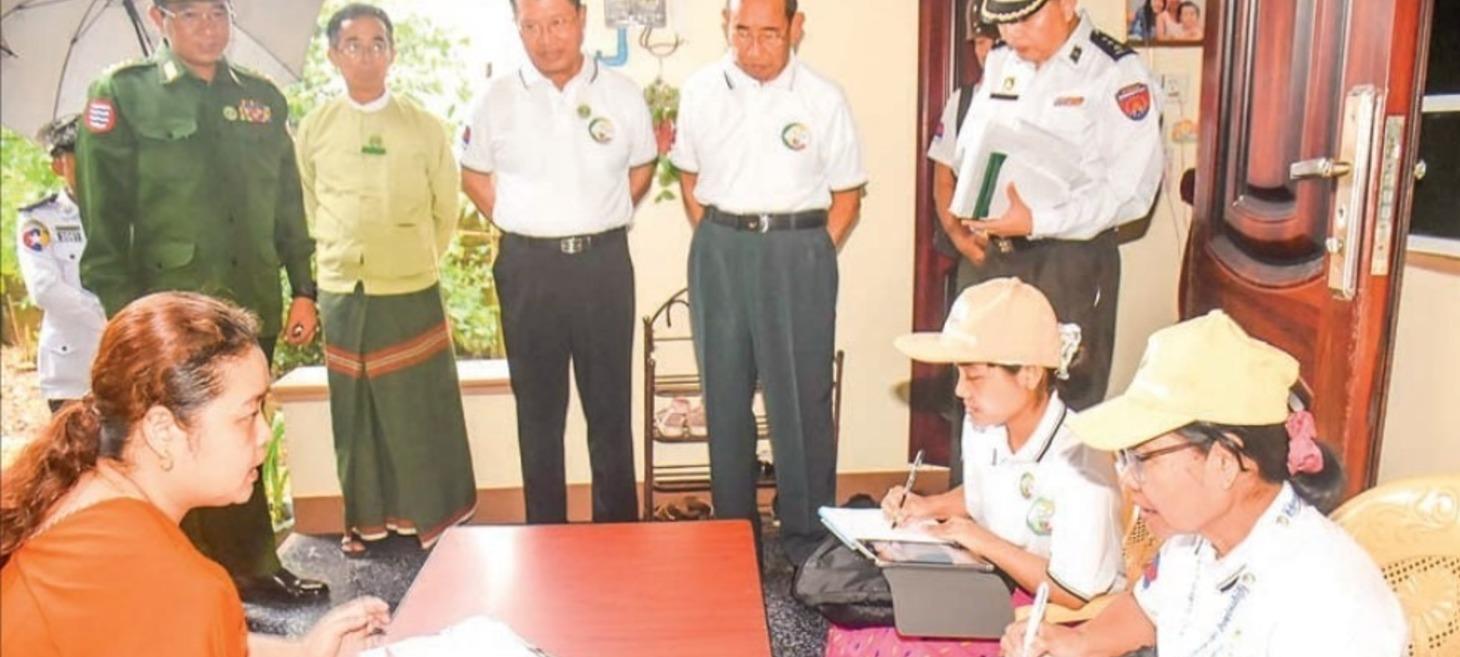
MYANMAR CENSUS PROBLEMATIC: Nationwide election necessity or junta’s repressive tool to cling on to power
The military junta in Myanmar, known as the State Administration Council (SAC), has initiated a nationwide census purportedly to create a valid voter list for a planned election in November 2025. However, many view this as a tool for repression and militarization to support the junta's regime. The census, involving 42,000 enumerators, began on October 1, 2024, covering 110,000 areas, but has faced criticism and resistance from various groups, including the National Unity Government (NUG) and ethnic armed organizations. Critics argue that the census is more about intelligence gathering and counterinsurgency than preparing for elections, with concerns about forced conscription, harassment, and Burmanization. The census excludes several regions and is seen as unreliable and illegitimate by the international community. Despite this, the junta is expected to use the data for military conscription and control over migration and remittances. Anti-junta forces are urged to develop countermeasures to protect vulnerable populations and resist the junta's plans.

A Rigged Game: The Regime’s Manipulative Call for Participation in Elections
The Myanmar military regime's call for participation in upcoming elections is widely viewed as manipulative and rigged, designed to maintain its grip on power rather than facilitate genuine democratic processes. The junta, led by Min Aung Hlaing, has been accused of setting up insurmountable obstacles to a fair election, including the dismantling of the National League for Democracy (NLD) and manipulating election rules to favor the military's proxy party. Despite international hopes for stability through these elections, the prevailing conditions of political turmoil and military violence make a democratic outcome unlikely. The regime's strategy mirrors past tactics used to divide resistance and stave off international pressure, while the opposition continues to push for a federal democracy as the only viable path to restoring governance and stability in Myanmar.
Conflict
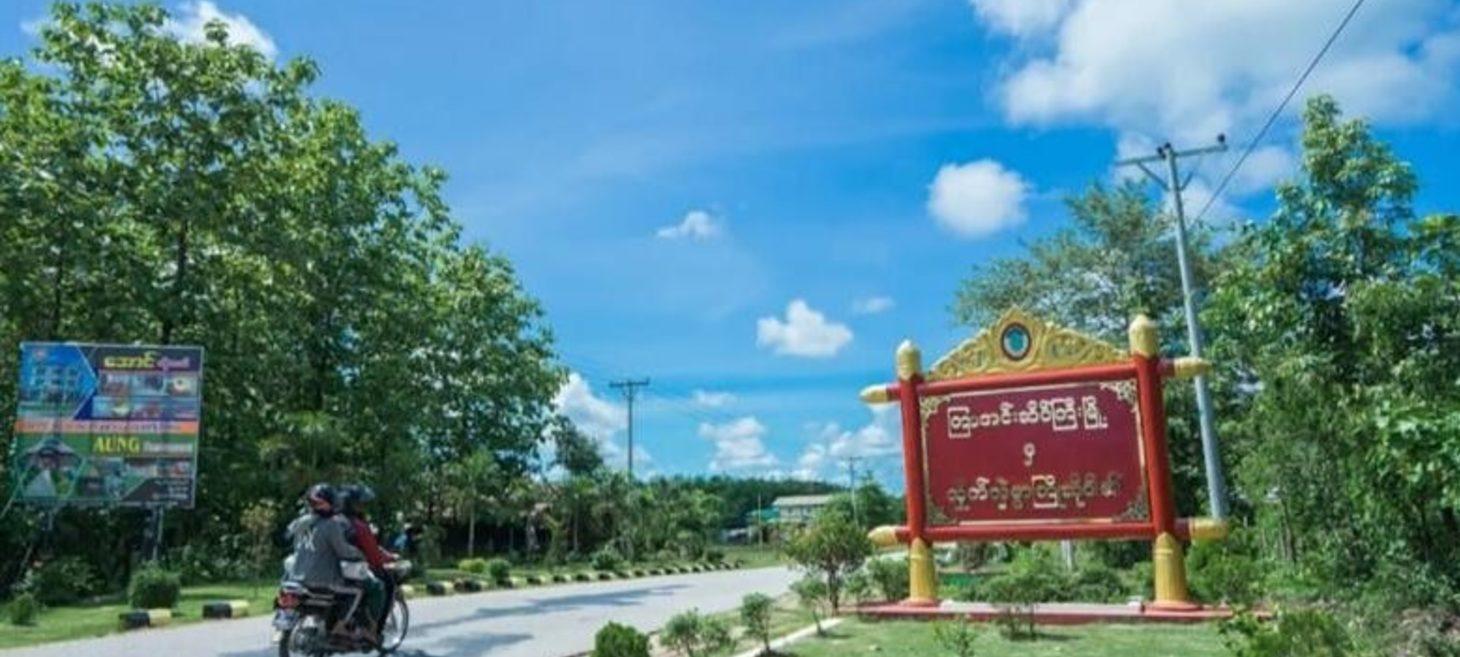
Drone Targets Administration Organising Census in Kyainseikgyi Town, Karen State
A drone strike targeted the junta's administrative office in Kyainseikgyi Town, Karen State, on October 2, 2024, coinciding with the start of a census enumeration by the military junta. The attack, which resulted in a loud explosion near a police station, is believed to be a response to the census activities that began on October 1. Following the drone strike, the junta retaliated by firing heavy artillery into areas surrounding the town. The census is being conducted only in towns controlled by the junta, such as Kyainseikgyi and Kawkareik, while rural areas under the control of the Karen National Union (KNU) remain inaccessible for enumeration. The KNU has opposed the census, arguing that it should not proceed while much of Myanmar is under the control of revolutionary forces.
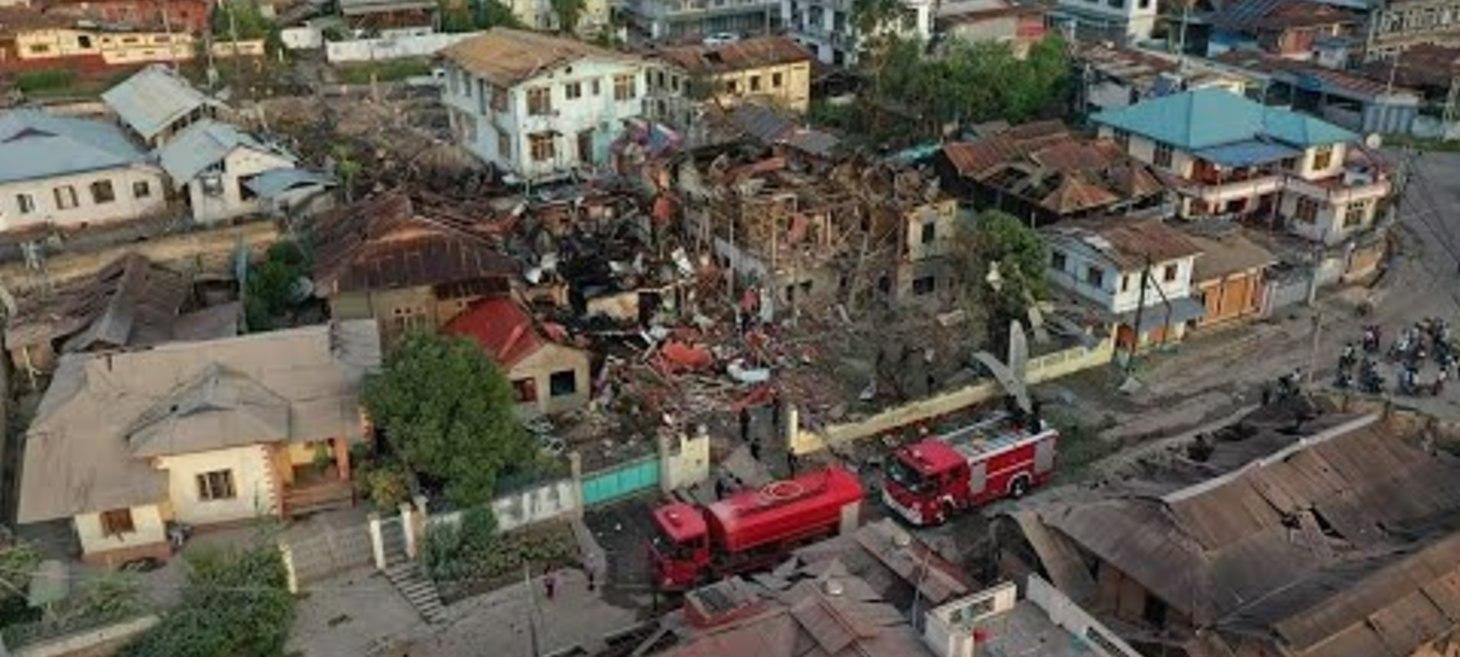
Why is the Myanmar military carrying out airstrikes on Lashio?
The Myanmar military is conducting airstrikes on Lashio, a town in Shan State, as part of its strategy to regain control over areas held by ethnic armed groups and resistance forces. The junta's offensive targets not only military positions but also civilian areas, including hotels and residential zones, causing significant displacement and fear among residents. This aggressive military action is seen as an attempt to weaken the stronghold of opposition forces and disrupt their operations. The airstrikes have led to a humanitarian crisis, with many civilians fleeing the area to escape the violence, highlighting the ongoing conflict and instability in Myanmar.
The post Why is the Myanmar military carrying out airstrikes on Lashio? appeared first on DVB.
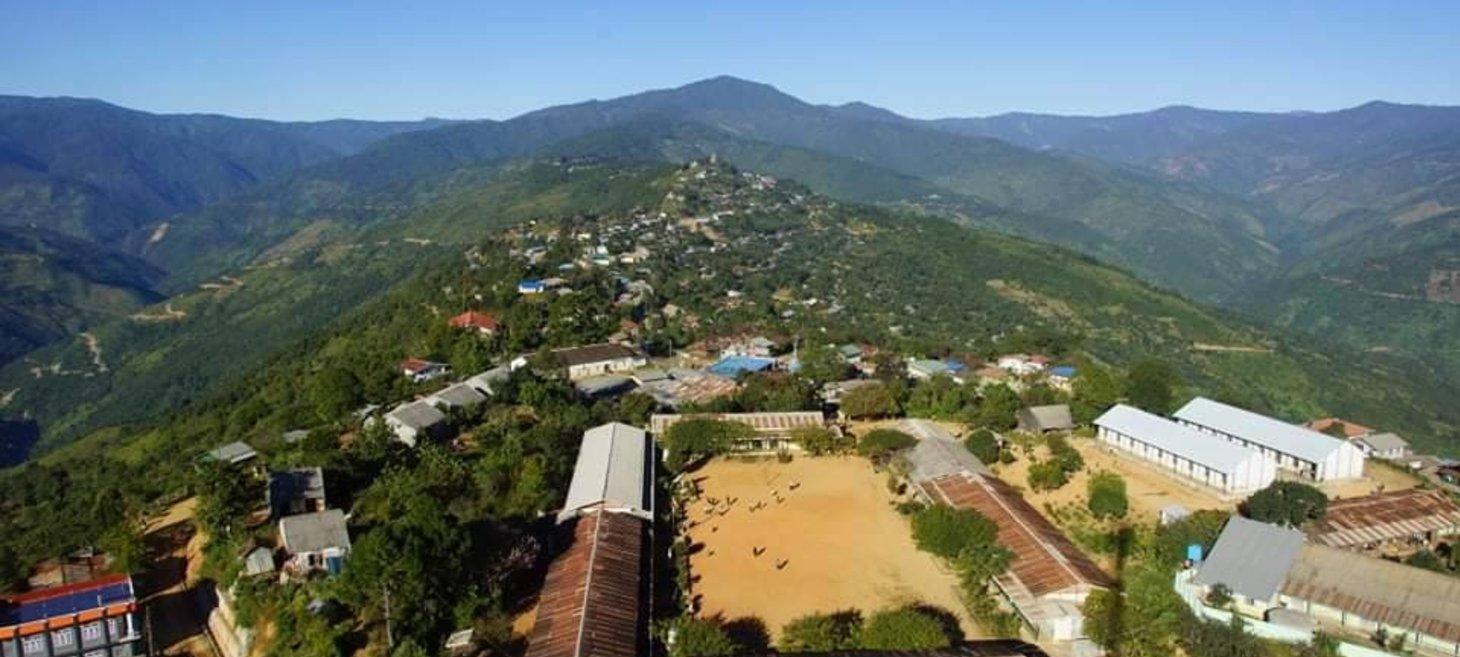
Myanmar junta torching houses in increasing numbers in Chin State’s Mindat Township
The Myanmar military has intensified its campaign of arson attacks in Mindat Township, Chin State, targeting civilian homes in areas suspected of harboring resistance forces. Since July, hundreds of houses have been burned by junta forces from the Light Infantry Battalion 274 base, which is one of the few remaining military positions in the area. These attacks have been accompanied by artillery shelling and airstrikes, causing significant displacement among residents. The ongoing violence has disrupted daily life, including the closure of village schools, and has been exacerbated by heavy rains following Typhoon Yagi, complicating relief efforts for displaced civilians. Despite temporary returns during quieter periods, many residents have been forced to flee again due to the renewed hostilities.
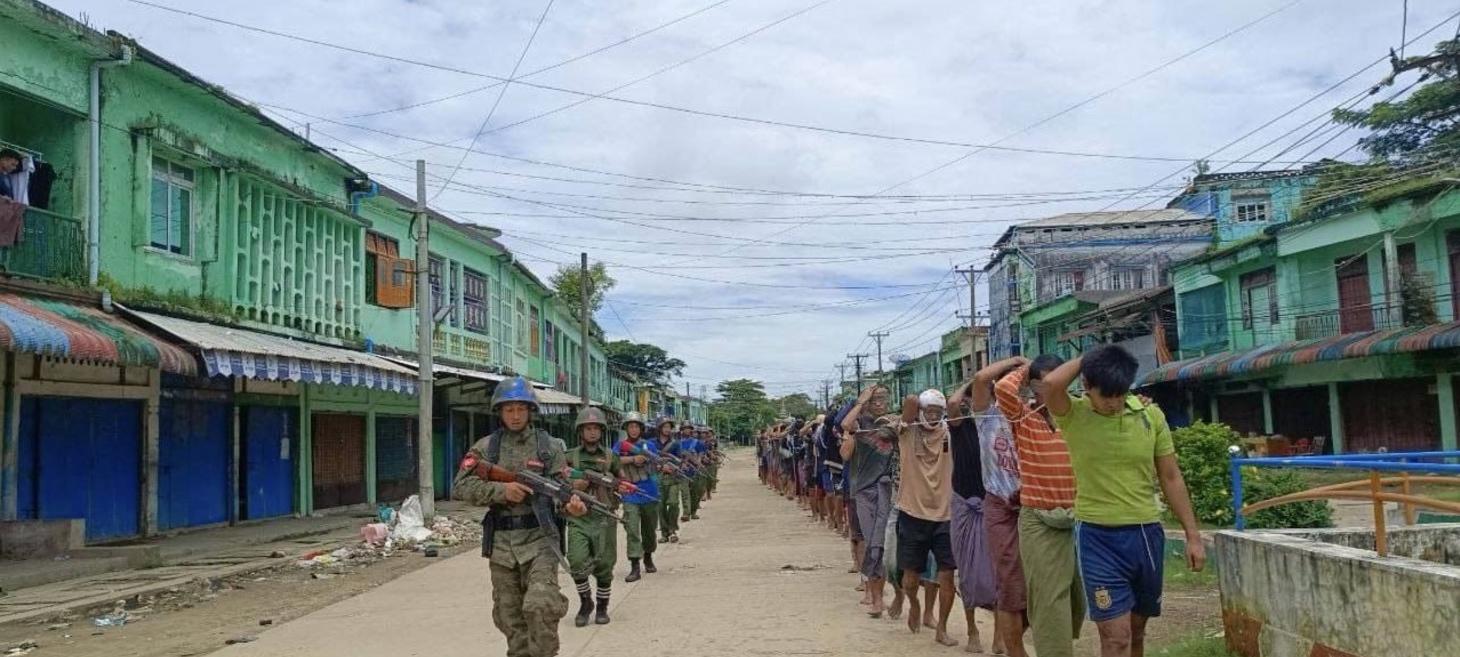
Arakan Army intensifies push to oust last Myanmar junta troops from Maungdaw
The Arakan Army (AA) is intensifying its efforts to capture the last remaining Myanmar junta outpost in Maungdaw Township, Rakhine State, after successfully taking control of the township's administrative center. The AA is now focused on the Border Guard Police Battalion 5 base near the Bangladesh border, which has led to relentless airstrikes by the military to defend the outpost. The conflict has resulted in the destruction of at least 10 houses and the area being littered with landmines, which the AA is working to remove. The AA's success in Maungdaw could potentially ease the scarcity of goods in Rakhine State by reopening trade routes with Bangladesh. However, the situation remains tense, with civilians facing safety concerns, including the recent disappearance of four individuals suspected to have been abducted by the Arakan Rohingya Salvation Army (ARSA). The AA accuses ARSA and other Rohingya groups of collaborating with Myanmar's military, further complicating the conflict in the region.
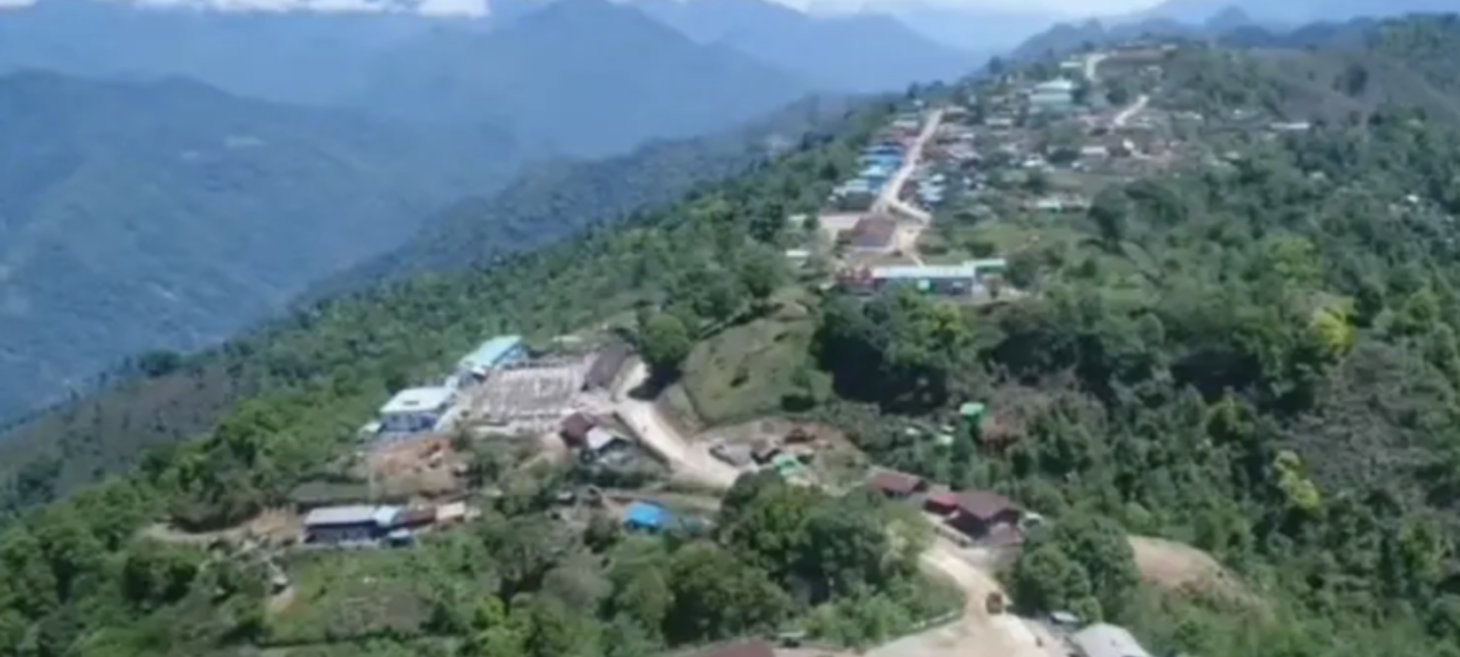
KIO confirms KIA takes full control of LIB-298 in Hsawlaw
The Kachin Independence Army (KIA) has successfully taken full control of the Myanmar military's Light Infantry Battalion 298 base in Hsawlaw, Kachin State, as confirmed by the Kachin Independence Organization (KIO). This victory is part of a broader offensive by the KIA against the junta forces in the region. The capture of the base marks a significant strategic gain for the KIA, as it strengthens their position in Kachin State and disrupts the military's operations. The ongoing conflict in the area reflects the continued resistance against Myanmar's military regime by ethnic armed groups seeking greater autonomy and rights.
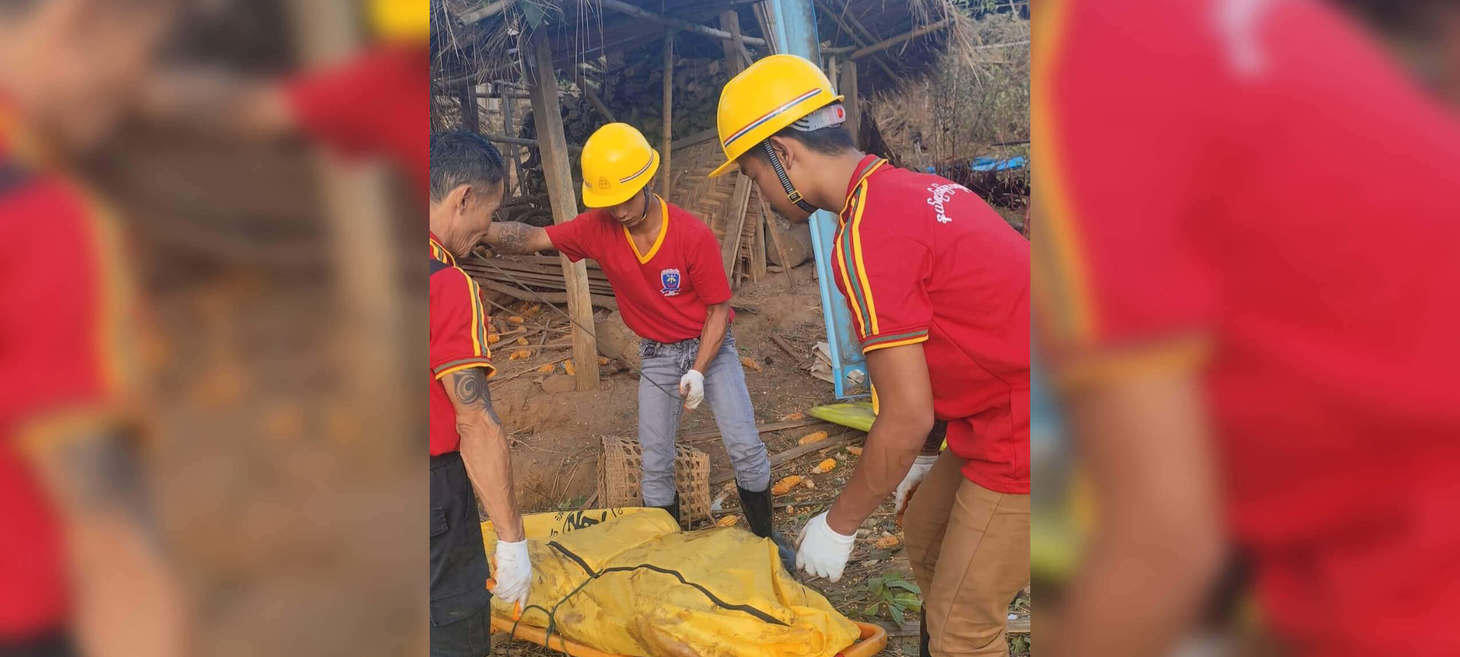
SAC Targets Local Charities Amid Efforts to Regain Territories
The State Administration Council (SAC) in Myanmar has intensified its military efforts to reclaim territories lost to ethnic rebels, now targeting local charities in the process. On September 29, an SAC airstrike hit a charity organization in Hsipaw Township that was aiding displaced people and the wounded, injuring several members. This attack is part of a broader campaign of airstrikes in the region, which have killed eight civilians and injured at least ten since mid-September. The SAC's actions are part of a counter-offensive to regain control of northern Shan State, where tensions are escalating with the Myanmar National Democratic Alliance Army (MNDAA) and other resistance forces. The conflict has resulted in civilian casualties and increased fears of intensified fighting, particularly as the MNDAA strengthens its forces in Mongyai. The SAC has also designated the People's Defense Forces (PDF) and the Brotherhood Alliance as terrorist organizations, further complicating the situation.
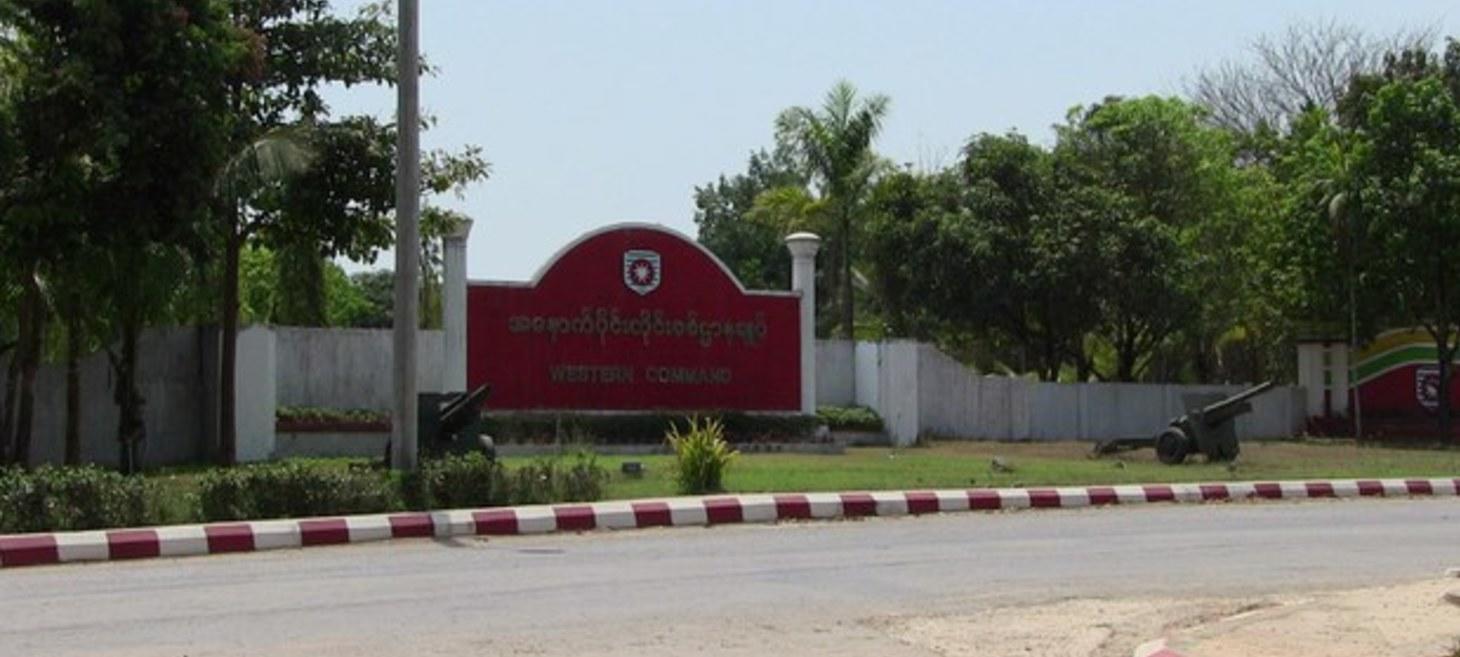
Rebels battle for Myanmar junta’s western military headquarters
The State Administration Council (SAC) in Myanmar has intensified its military efforts to reclaim territories lost to ethnic rebels, now targeting local charities in the process. On September 29, an SAC airstrike hit a charity organization in Hsipaw Township that was aiding displaced people and the wounded, injuring several members. This attack is part of a broader campaign of airstrikes in the region, which have killed eight civilians and injured at least ten since mid-September. The SAC's actions are part of a counter-offensive to regain control of northern Shan State, where tensions are escalating with the Myanmar National Democratic Alliance Army (MNDAA) and other resistance forces. The conflict has resulted in civilian casualties and increased fears of intensified fighting, particularly as the MNDAA strengthens its forces in Mongyai. The SAC has also designated the People's Defense Forces (PDF) and the Brotherhood Alliance as terrorist organizations, further complicating the situation.
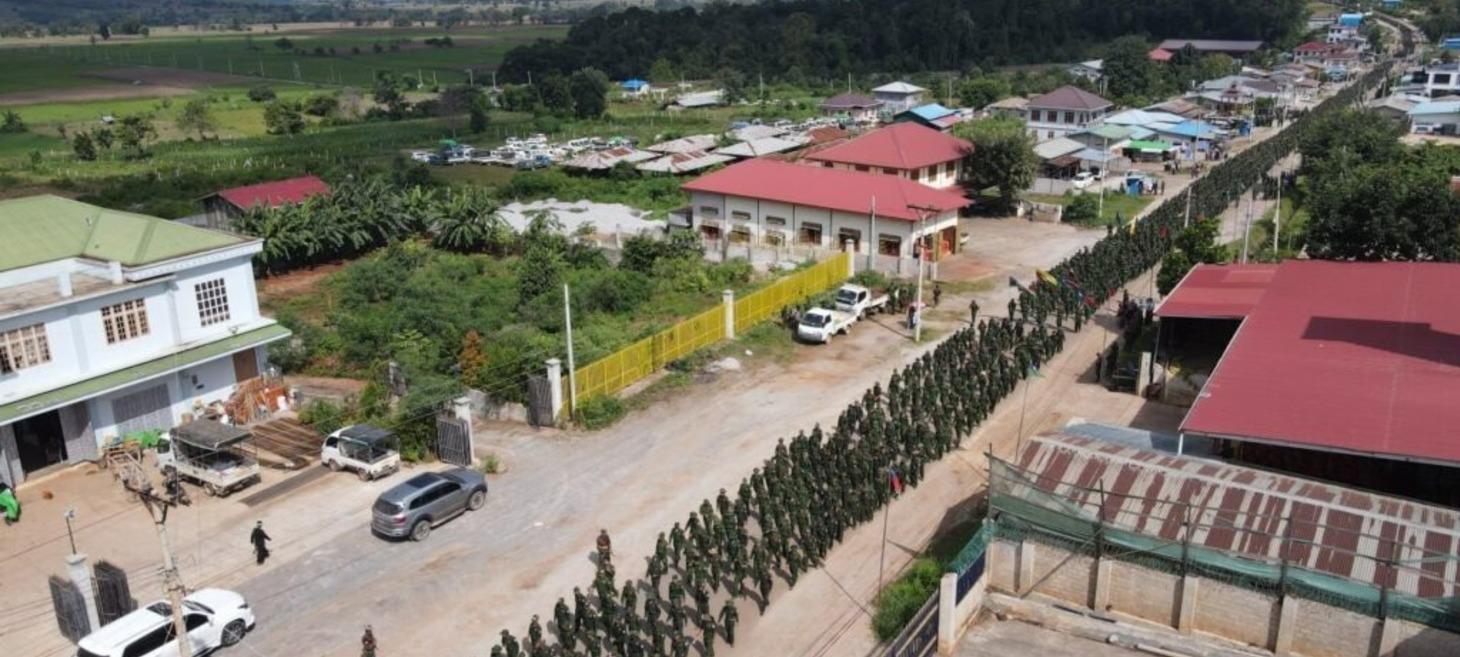
Pa-O Militia Forces Villagers to Participate in Pro-Military Rally in Taunggyi Township
The Pa-O National Army (PNA/PNO) is coercing civilians in Shan State to purchase uniforms and participate in military parades to inflate their apparent troop numbers. On September 30, 2024, men aged 18 to 50 from Pawmu Village were compelled to attend a military training graduation ceremony, despite not having completed any training. Participants were forced to pay 50,000 kyats for uniforms and partake in parades, with some having only undergone a brief 10 to 15-day training focused on basic drills. The PNA's social media showcased videos suggesting over 20,000 new recruits, though locals claim the actual number is less than 10,000, as many participants were merely civilians. The PNA justifies this by emphasizing the importance of basic military skills for regional control. High-ranking PNA officials attended the ceremony, which followed a similar event in August with purportedly 10,000 participants in Pinlaung Township.
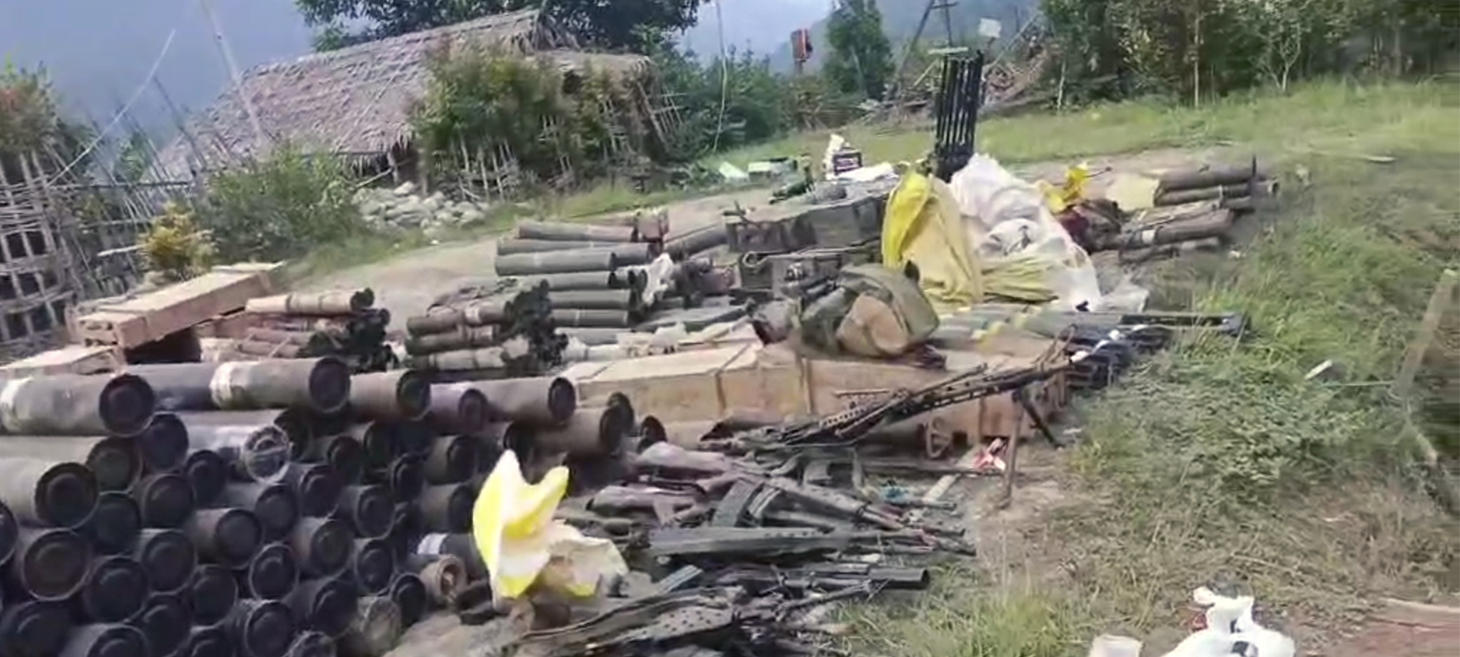
KIA Tells Myanmar Junta Allies to Switch Sides
The Kachin Independence Army (KIA) has called on Myanmar junta allies to switch sides, urging them to join the resistance against the military regime. This appeal comes amid ongoing conflicts in Kachin State, where the KIA has been actively fighting against the junta's forces. The KIA's message is directed at ethnic armed organizations and other groups currently aligned with the junta, emphasizing the need for unity among resistance forces to effectively challenge the military's control. The KIA's call highlights the complex dynamics within Myanmar's ongoing conflict, where alliances and loyalties are continually shifting in response to the military's actions and the broader struggle for autonomy and rights among ethnic groups.
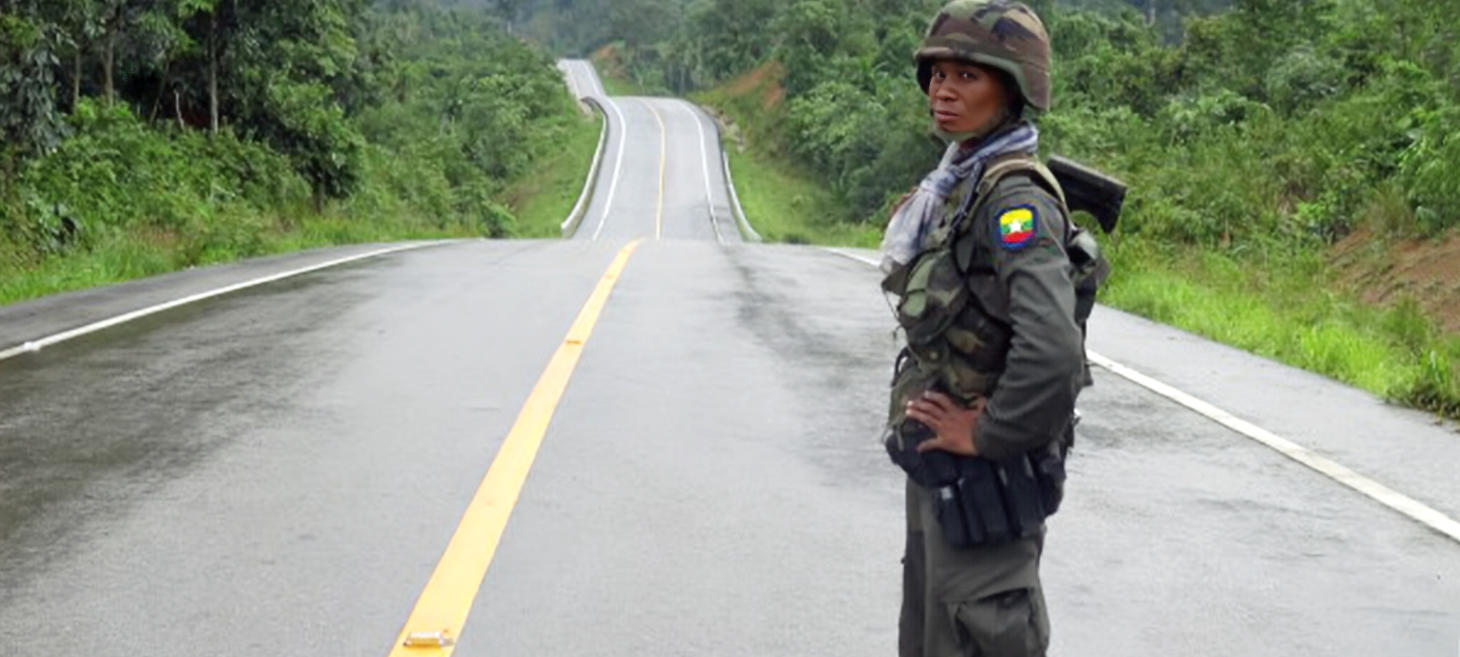
KNU Refuses to Reopen Myanmar’s Asian Highway
The Karen National Union (KNU) has refused to reopen the Asian Highway to Myawaddy on the Thai border, citing concerns that the Myanmar military could use the road to advance on their positions. Despite requests from both the Myanmar junta and the Thai government to reopen the road to facilitate trade and reduce consumer prices, the KNU remains firm in its decision. The highway has been closed since December last year following an attack by the KNU and its allies. The closure has forced civilians and transport companies to use alternative, poorly maintained routes, which are controlled by various militia groups that charge tolls. The situation has led to increased logistical challenges and economic strain in the region.
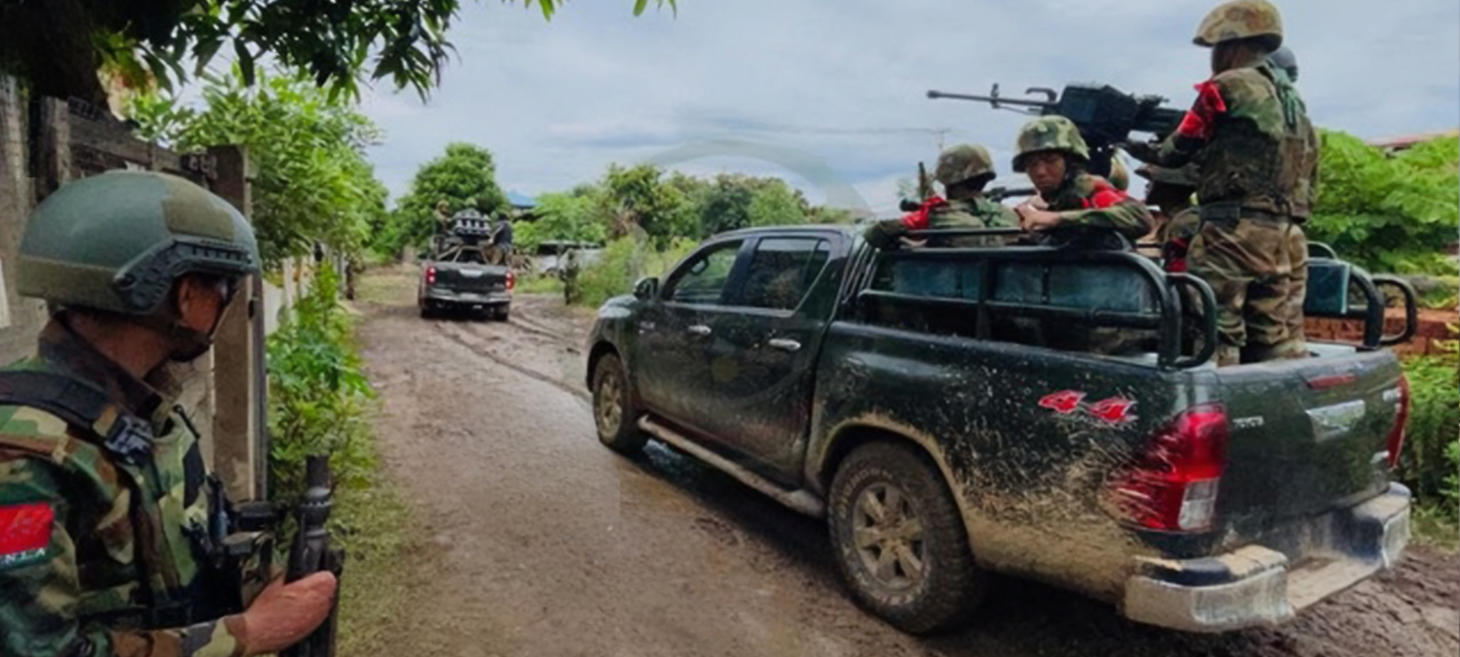
TNLA Targets Final Myanmar Junta Stronghold in Hsipaw Township
The Ta'ang National Liberation Army (TNLA) has launched an offensive against the last stronghold of the Myanmar military junta in Hsipaw Township, located in Shan State. This move is part of a broader strategy by ethnic armed groups to weaken the junta's control in the region. The TNLA's attack is significant as it targets a key military base, aiming to disrupt the junta's operations and supply lines. This offensive is part of ongoing conflicts in Myanmar, where various ethnic groups are fighting for autonomy and against the central government's military rule. The situation remains tense, with potential implications for the stability and humanitarian conditions in the area.
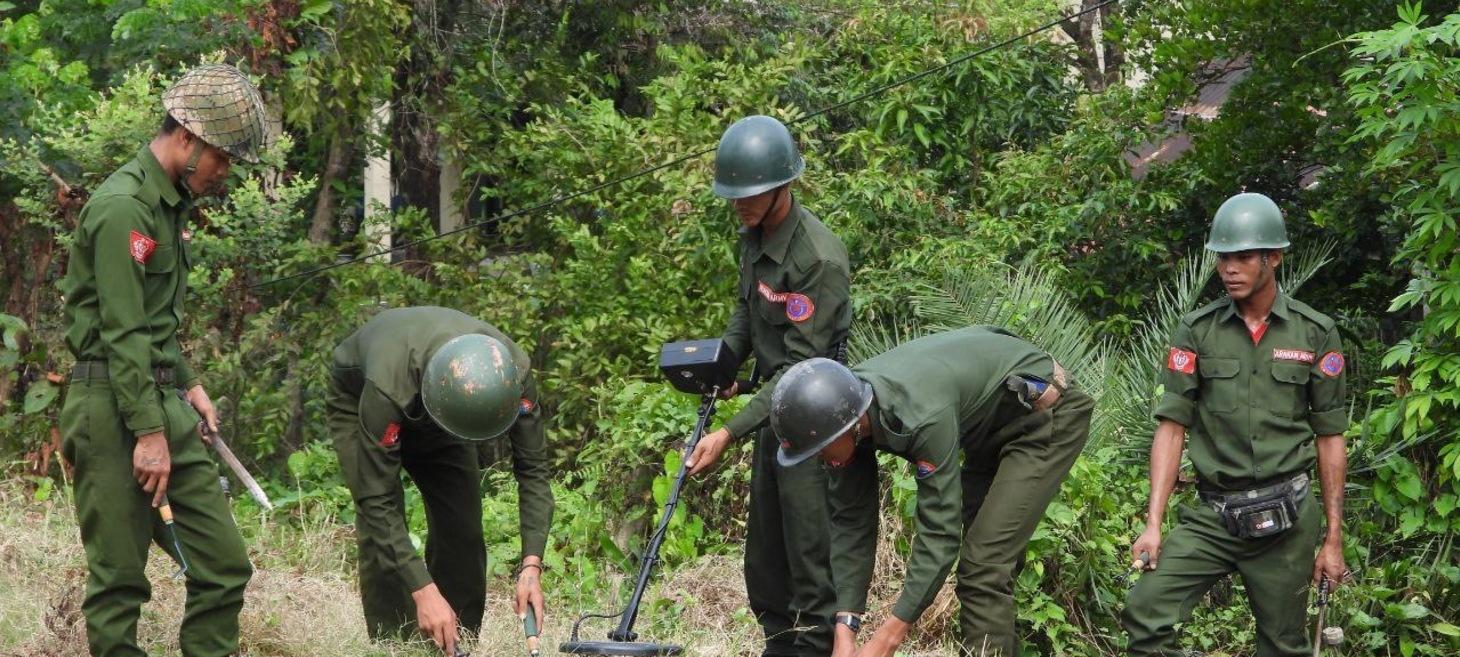
AA captures hilltop base near Myanmar junta’s Western Regional Command
The Arakan Army (AA) has successfully captured a strategic hilltop base near the town of Ann in Rakhine State, which is close to the Myanmar junta's Western Regional Military Command. This victory follows nearly two weeks of intense fighting, including shelling and airstrikes, and is part of the AA's broader offensive to gain control over Rakhine State, initiated in November of the previous year. The capture of Mae Taung Hill removes significant obstacles for the AA, potentially allowing them to advance into Ann at any time. This development underscores the ongoing conflict and shifting power dynamics in the region.
Conscription
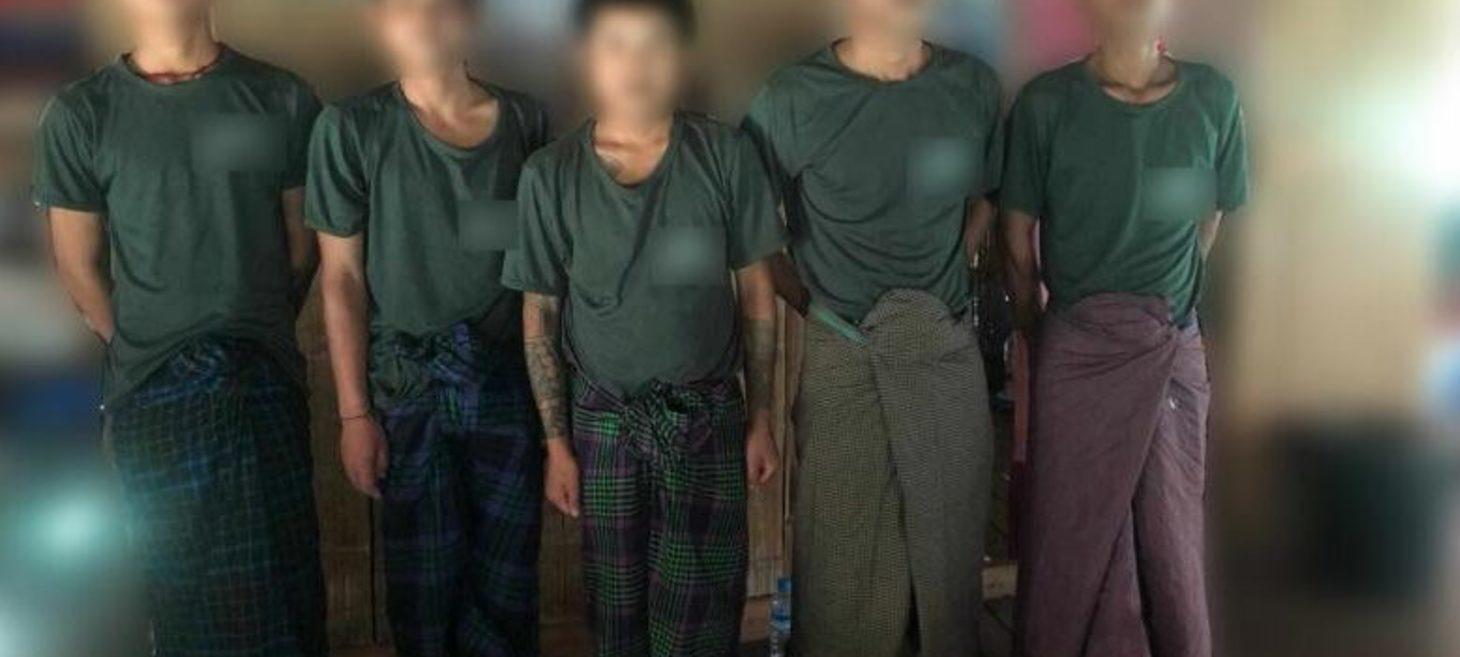
Junta Conscripts Desert Army in Karen State
In late August, the Myanmar junta sent 200 soldiers, many of whom were newly conscripted, to reinforce the Ahnankwin base in Dooplaya District, an area largely controlled by the Karen National Union/Karen National Liberation Army (KNU/KNLA) Brigade 6. However, 15 of these conscripts surrendered to the KNLA, while 10 fled during the march to the base and another five deserted from the base itself. A young conscript expressed relief at escaping, urging others to do the same. The KNLA has been attacking the Ahnankwin base, a key tactical operations command for the junta, prompting the military to deploy reinforcements and conduct heavy airstrikes and artillery shelling. This has resulted in the destruction of half the houses in Ahnankwin Village and the displacement of thousands of residents. Additionally, nearby villages have faced arbitrary artillery fire from the junta's Artillery 315 base, causing repeated displacements despite the absence of active fighting in those areas.
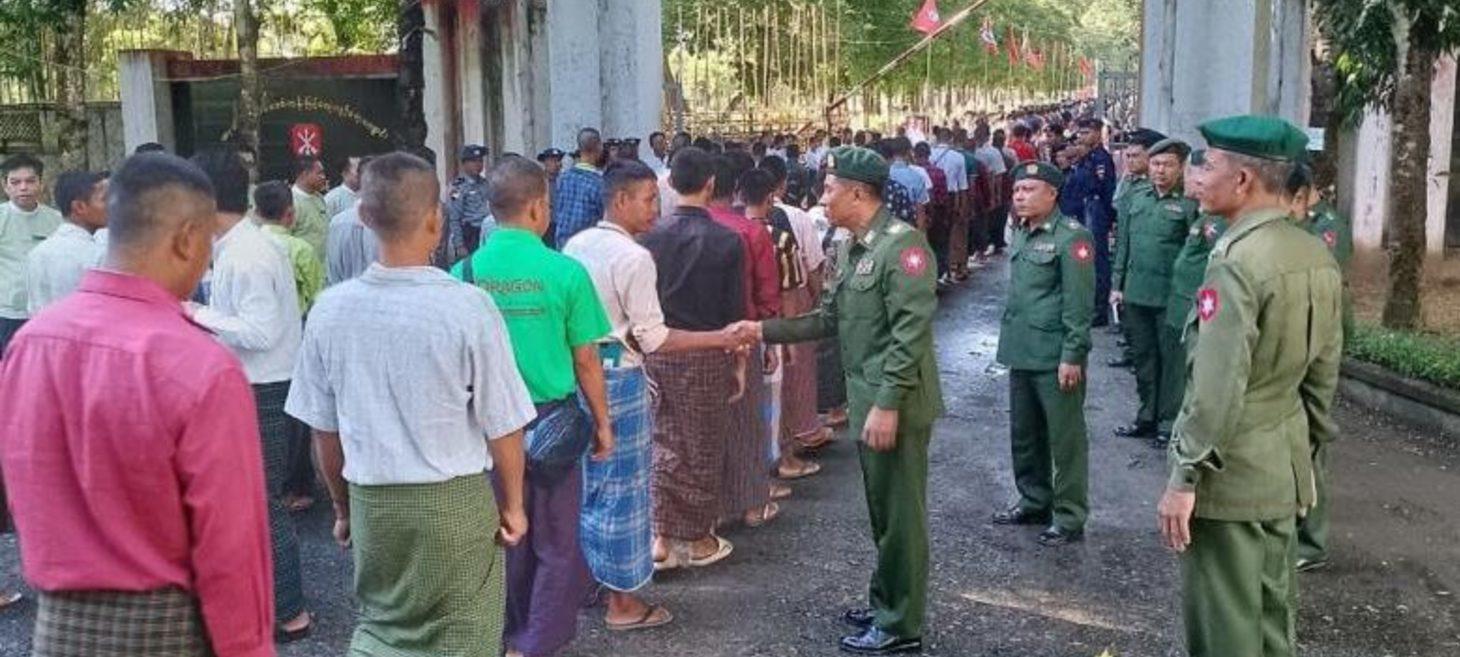
BGF Helps Junta Collect Conscription Lists
Since October 1, 2024, in Kamarmaung Town, Hpapun Township, and surrounding villages, the Border Guard Force (BGF) soldiers have been collecting the names of local men aged 30 to 60 for conscription into the Myanmar junta army. The junta plans to provide funding and equipment for these conscripts, who will undergo military training and be deployed for local security measures. The BGF is primarily responsible for this conscription drive, which is more openly conducted in Kamarmaung Town than in the outskirts. Some residents have been coerced into signing agreements during meetings with junta and BGF troops. Those unwilling to join the military can avoid conscription by paying a monthly fee. The enumeration process is ongoing, and local youths are evacuating to avoid conscription, while the BGF enforces strict roadblock checks to prevent their escape. The conscription drive is led by Bo Maung Chit, commander of BGF Battalion 1014, under the direction of the junta-appointed Karen State Chief Minister, Saw Myint Oo.
Crime & Narcotics

SE Asia-Based Scam Groups Raked in $37 Billion in 2023
Scam groups based in Southeast Asia generated up to $37 billion in 2023, despite increased law enforcement efforts, according to a United Nations report. These groups have expanded their operations, utilizing advanced technologies like malware and generative AI, and adopting "service-based" business models. The rise in cybercrimes, including crypto fraud and romance scams, is particularly notable in the Mekong region, encompassing countries such as Cambodia, Laos, and Myanmar. The illicit economy's growth has led to the professionalization of money laundering activities, making these groups global leaders in the market. Additionally, thousands of individuals have been trafficked to work in scam centers, exacerbating governance challenges in border areas. The report highlights that the impact of these scams extends beyond financial losses, which ranged from $18 billion to $37 billion, as the funds are often used to support other criminal activities like human trafficking and drug trade.
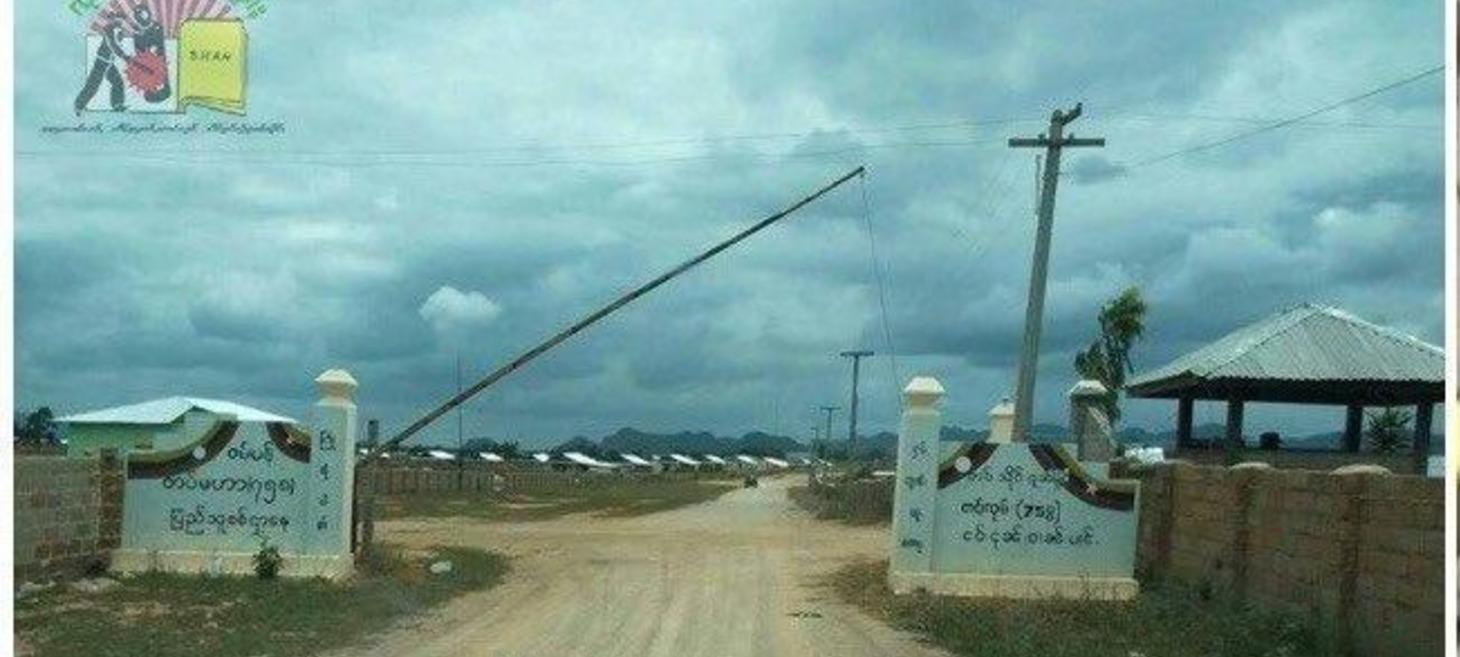
Scam gangs move to Militia controlled territory in Laihka Township, Shan State
Telecom scamming gangs, known as Zhapian, have moved into a militia-controlled village in Laikha Township, central Shan State, and are recruiting young people for their operations. These gangs operate near Manpang Village, with security provided by the pro-junta Manpang Militia, which also handles the transportation of recruits. The gangs target young people under 20 and employ support staff like cooks, offering tempting financial incentives amid local economic hardships exacerbated by recent floods and job shortages. Despite efforts by the Three Brotherhood Alliance to eradicate these gangs, they have relocated to areas controlled by the junta or allied militias in southern Shan State. The presence of these gangs poses a threat to community safety, and political activists highlight that their survival is due to protection from armed groups like the Manpang Militia. Observers warn that while the financial allure is strong, involvement with these gangs is dangerous and difficult to escape.
Economy
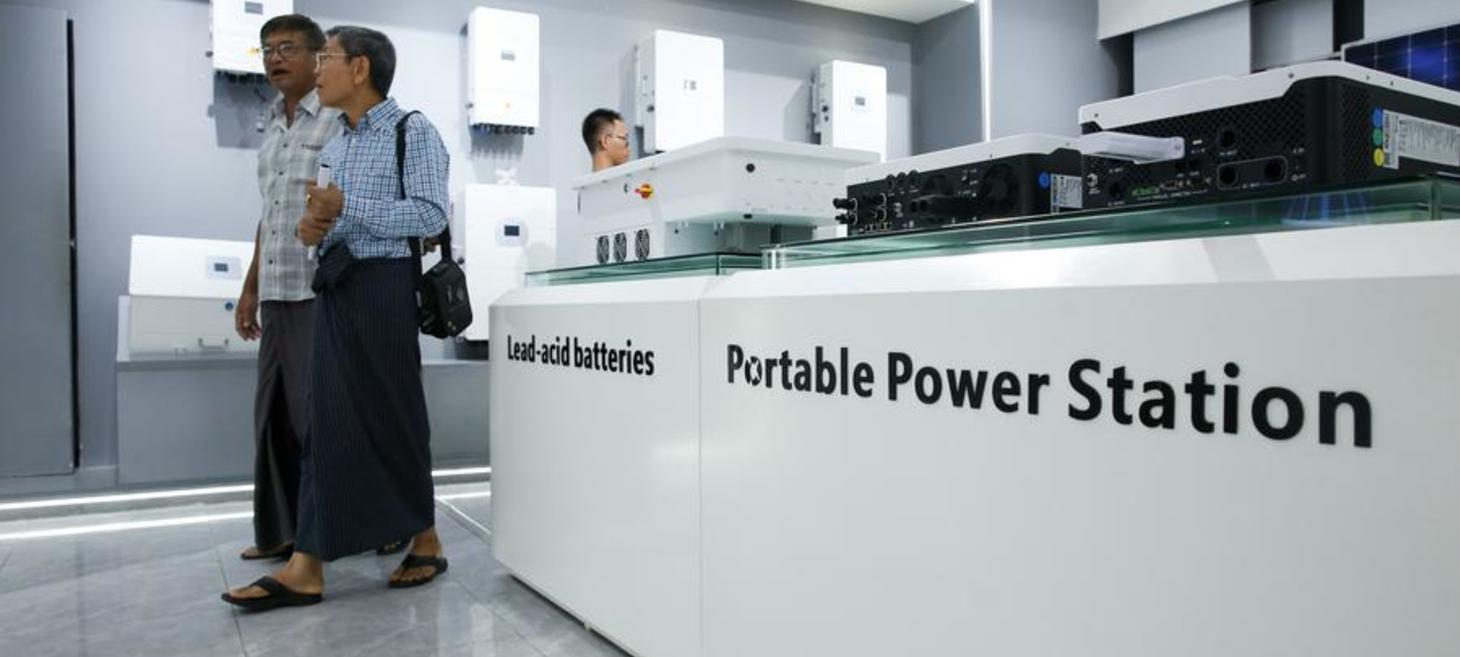
Electricity bills drive solar adoption in Myanmar - Xinhua
The adoption of solar energy in Myanmar is increasing due to rising oil prices and electricity costs, along with improved market accessibility for solar products. This shift is driven by the need for a reliable and sustainable energy source amid unstable electricity supplies and high bills. Chinese companies, particularly Sandisolar, are leading the solar market in Myanmar, with a significant rise in solar projects from 36 in 2022 to 115 in 2023, and over 200 planned for 2024. Solar energy is being adopted in both urban and rural areas, supporting businesses by reducing costs and providing a steady power supply, while also contributing to a quieter and more environmentally friendly atmosphere. The expansion of solar projects is further supported by Lancang-Mekong Cooperation and China-Myanmar cooperation programs.
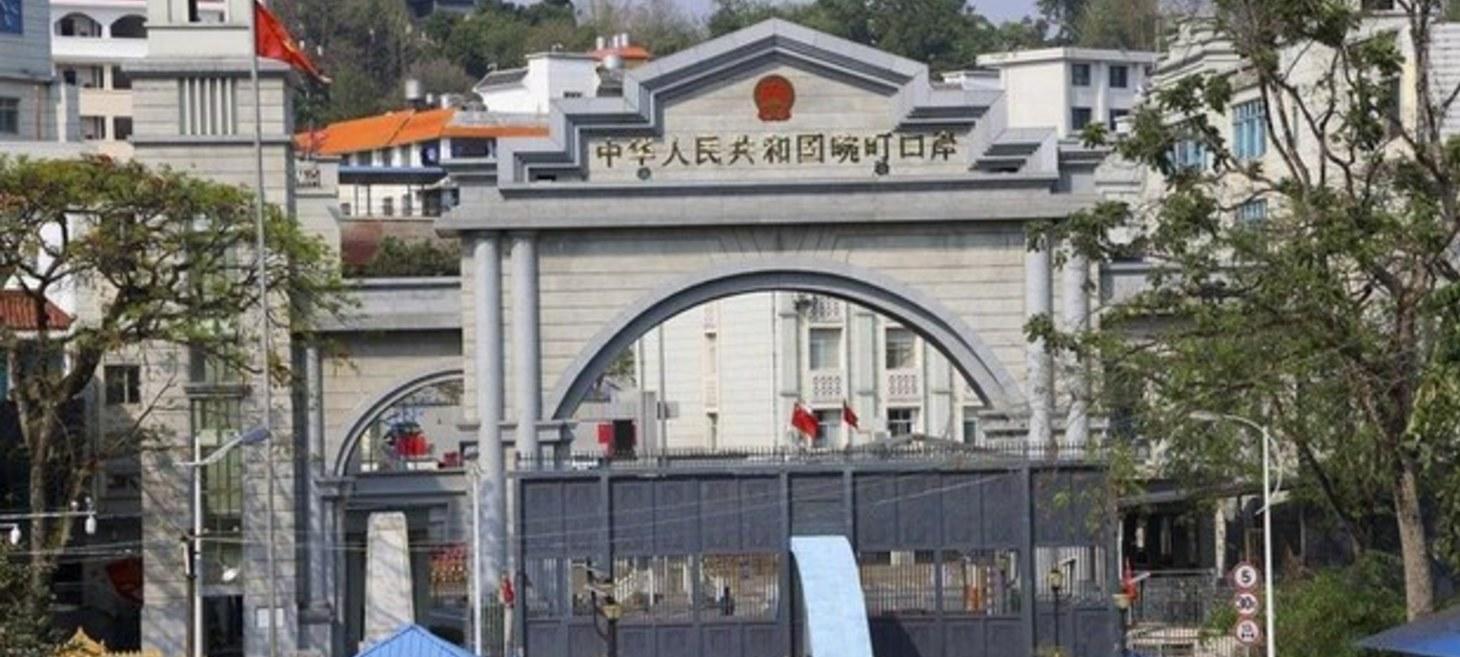
Traders in Myanmar struggle as borders with China remain closed in rebel-held areas
Merchants dealing in Chinese goods in Myanmar are struggling due to China's closure of its borders with areas controlled by anti-junta ethnic rebels. Since the military coup in February 2021, trade between China and Myanmar's northern Shan State reached $9 billion, but the recent seizure of the area by rebel groups led to Beijing shutting down border crossings. This has severely impacted livelihoods, with truck drivers and merchants facing unemployment and increased prices for Chinese goods. The Three Brotherhood Alliance, comprising several ethnic armed groups, controls most of the border crossings, while only the Singbyu gate remains open with limited access. The situation has led to increased customs duties and restrictions by the junta, further exacerbating economic hardships for those reliant on cross-border trade.
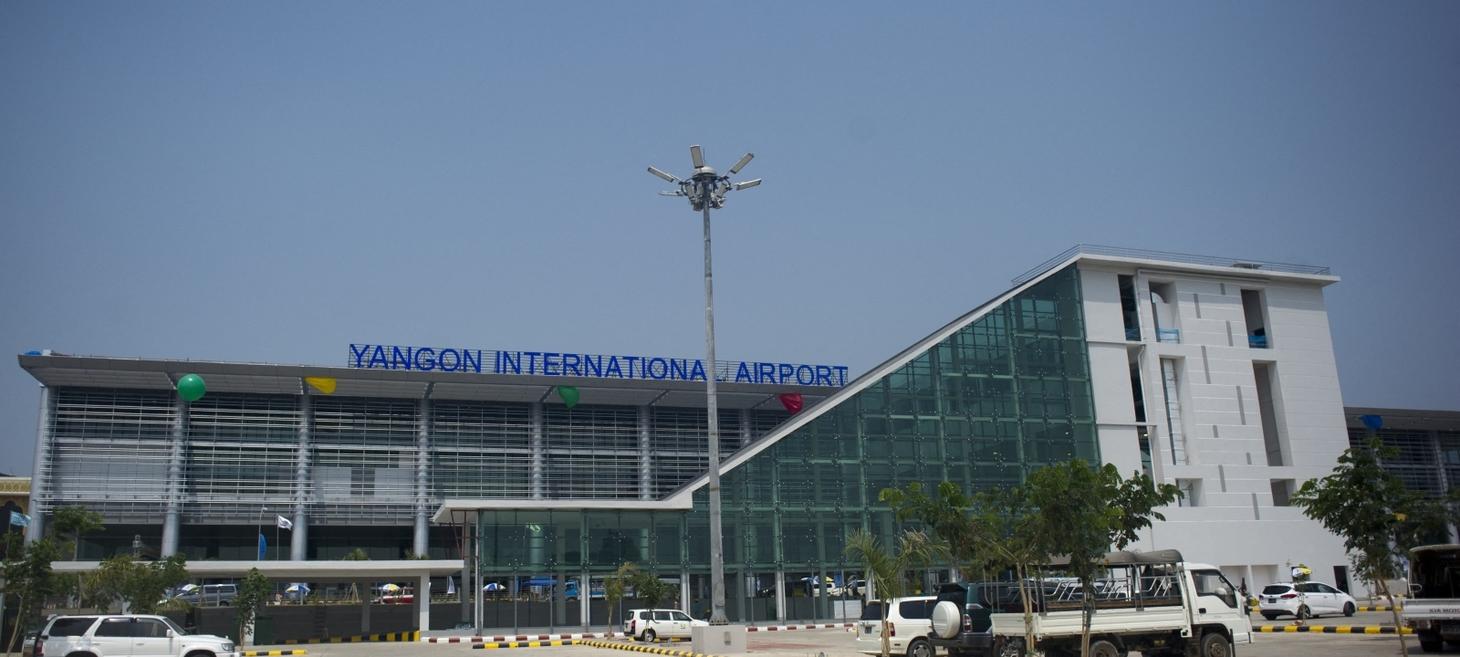
Blocking the exits: Myanmar junta turns the screws on migrant workers
The Myanmar junta is tightening restrictions on migrant workers to increase foreign exchange reserves and enforce military conscription laws. The regime has implemented strict measures requiring migrant workers to remit 25% of their income through official channels and pay a 2% income tax while closing loopholes allowing workers to travel on tourist visas. These policies have increased scrutiny at airports, with many travelers barred from leaving the country. The junta's actions have forced many to seek illegal migration routes, exposing them to exploitation. Additionally, the regime is using document renewals as leverage to ensure compliance with its financial demands. The crackdown is part of a broader effort to prevent young people from evading military conscription, as the junta faces significant opposition and economic challenges.
Foreign Affairs

Indonesia to host discussions on Myanmar conflict: diplomat
Indonesia is set to host diplomatic talks in Jakarta on Myanmar's ongoing civil conflict, involving representatives from Indonesia, ASEAN, the European Union, the United Nations, and anti-junta groups, but excluding Myanmar's military regime. These discussions, scheduled just before the ASEAN summit in Laos, aim to address the crisis that has persisted since the 2021 coup. ASEAN has struggled to make progress in resolving the conflict, with member countries like Indonesia, Malaysia, and the Philippines advocating for stronger measures against Myanmar's military leaders, who have been excluded from high-level ASEAN meetings. The talks come as Myanmar's military faces setbacks against ethnic armed groups and pro-democracy forces, with over three million people displaced due to the conflict.
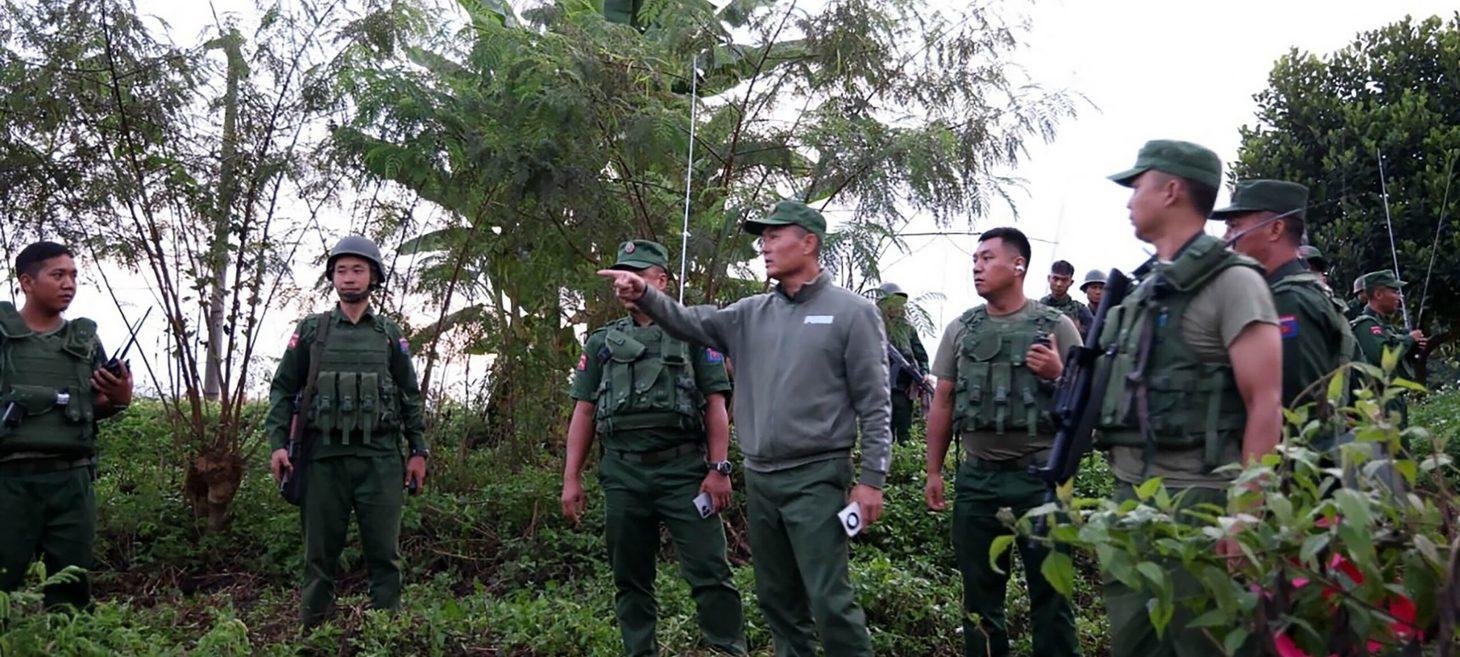
China wants offensive against Myanmar regime to end, leaked document shows
A leaked document obtained by Myanmar Now reveals China's increasing concern over the stability of Myanmar's junta following the loss of Lashio, a strategic town, to anti-junta forces. China, a long-time supporter of Myanmar's military regimes, fears that the junta's potential collapse could harm its geopolitical interests, particularly its access to the Indian Ocean. In response, China has pressured armed groups to cease their offensives against the junta by blocking food and fuel supplies to areas under their control. The document details a meeting between Chinese officials and leaders of the United Wa State Army, Myanmar's most powerful ethnic armed group, highlighting China's efforts to stabilize the situation and protect its interests in the region.
Humanitarian
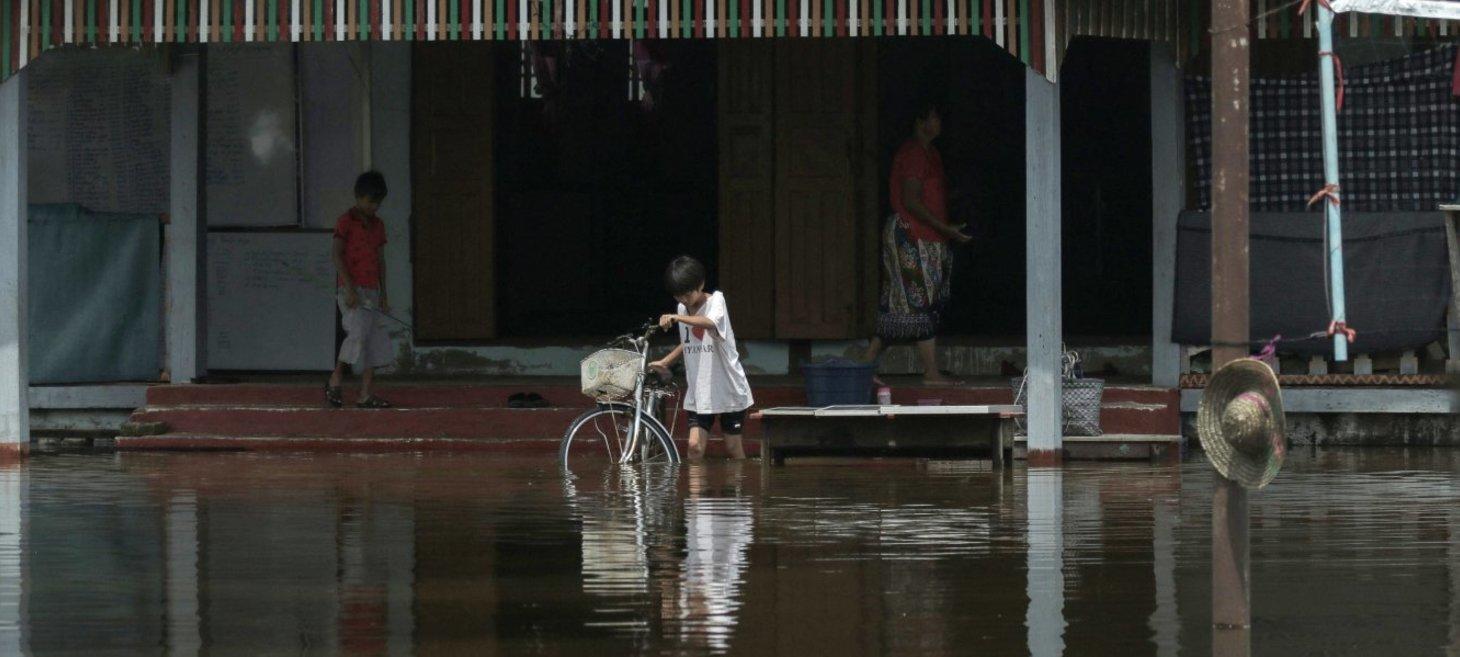
The United States Must Exercise Leadership to Help Myanmar’s Flood Victims - csis.org
The United States is urged to take a leadership role in addressing the humanitarian crisis in Myanmar following the devastation caused by Typhoon Yagi, which has resulted in over 300 deaths and affected around 1 million people. The storm has exacerbated Myanmar's existing challenges of political turmoil and economic instability, with significant damage to infrastructure and agriculture, raising concerns about food security. The U.S. is encouraged to coordinate international support, working with local civil society organizations to ensure aid reaches those in need while overcoming bureaucratic hurdles imposed by Myanmar's junta. The situation draws parallels to the 2008 Cyclone Nargis disaster, highlighting the need for a swift international response to prevent further loss of life and to support Myanmar's recovery efforts.
Politics

Junta’s Old Tactics Are Deficit in Current Reality
The military-led State Administration Council (SAC) in Myanmar urged anti-junta armed groups to disarm and engage in political dialogue. Still, these groups dismissed the call as insincere, citing the military's long history of obstructing political dialogue. The military's reluctance to engage with ethnic nationalities has created a power vacuum, leading opposition groups to establish themselves while being labeled as terrorists by the military. Despite the suffering of civilians due to military offensives and natural disasters, the military prioritizes conducting a census and elections to legitimize its rule, using strategies similar to those from past decades. The military's refusal to transfer power after the 1990 election and its push to convert ethnic armed groups into Border Guard Forces highlight its aim to maintain control. The 2021 coup, blamed on election fraud, further stalled Myanmar's democratic progress, with the military facing opposition from both ethnic groups seeking federalism and the pro-democracy Burman majority. If the military continues to prioritize control over genuine political dialogue, Myanmar risks further fragmentation as various groups strive for autonomy.